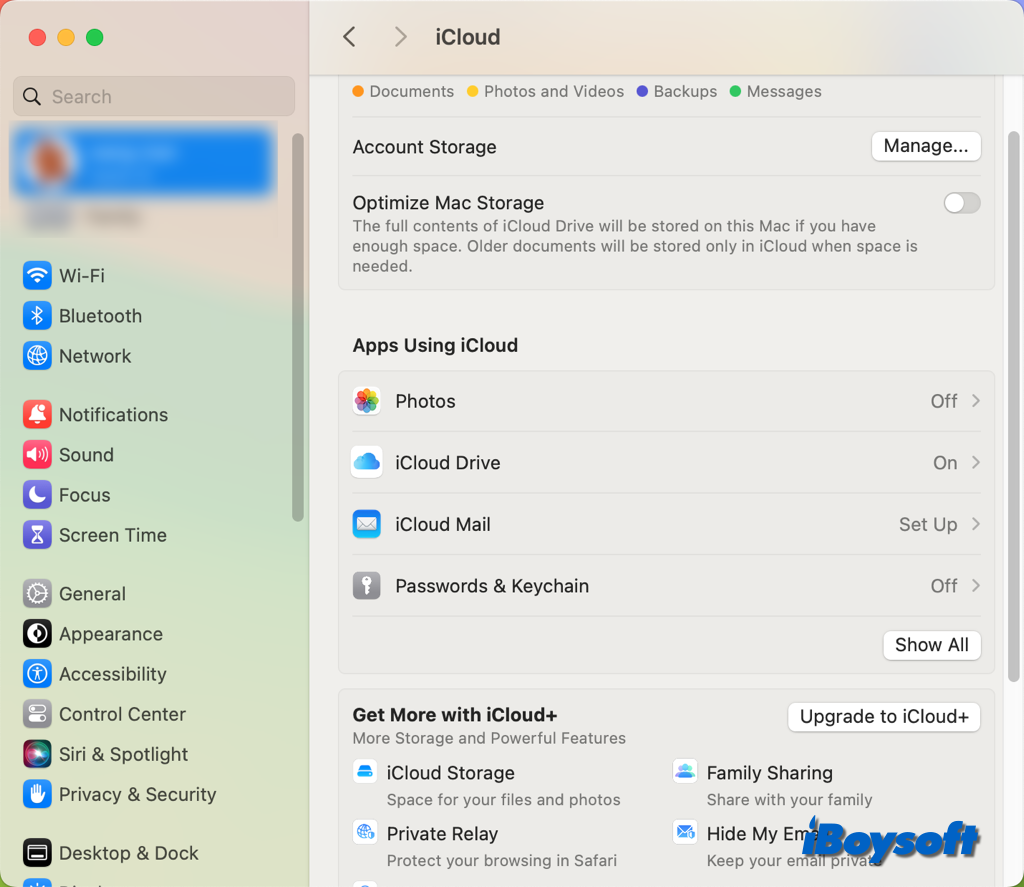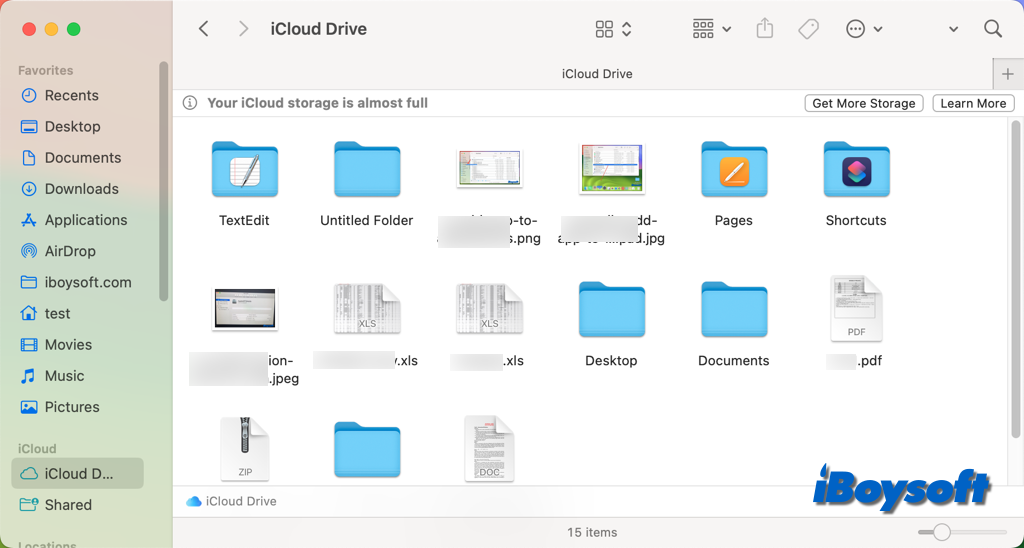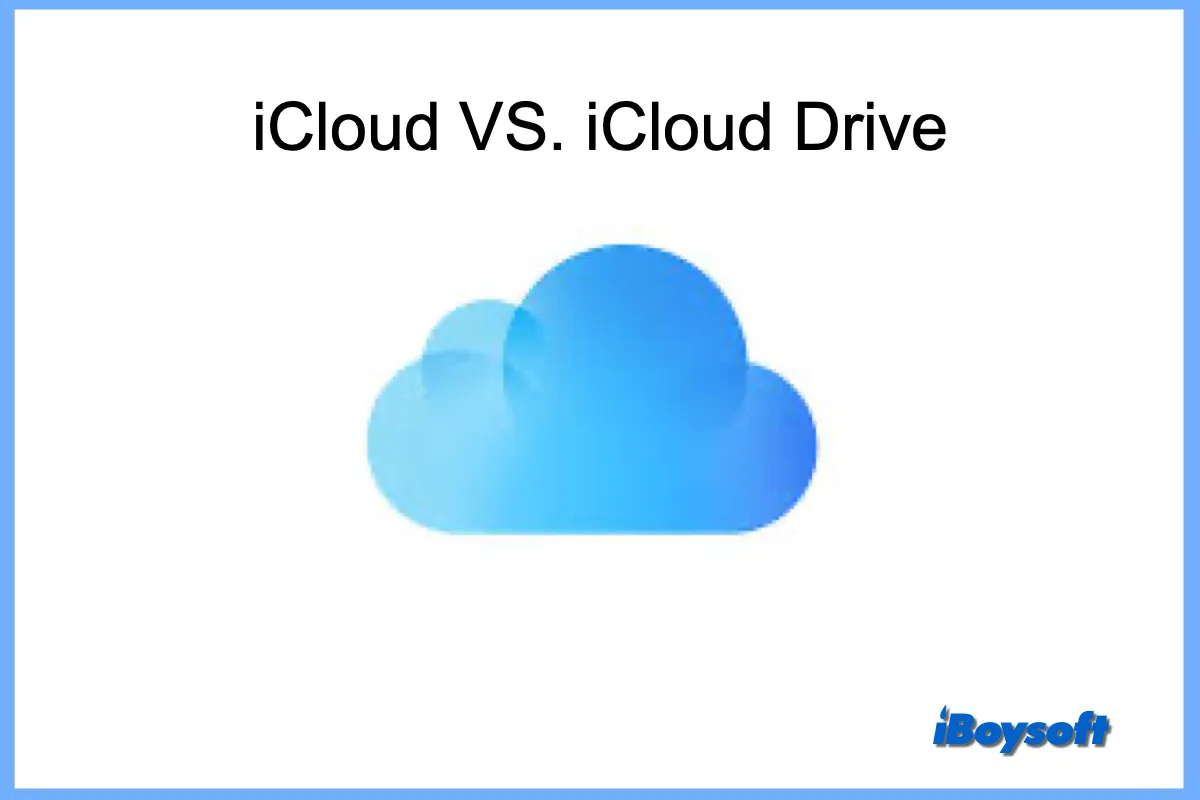iCloud and iCloud Drive are two of Apple's well-known offerings in the rapidly growing field of cloud storage options. The terms may sound similar, but in the Apple environment, they have different functions. To optimize your experience with digital storage, it is necessary to understand the differences between iCloud and iCloud Drive.
iCloud vs iCloud Drive: Introduction
iCloud is Apple's cloud service available on your Apple devices, Window, and iCloud.com. It helps you keep your most important information secure, up-to-date, and accessible across all your devices. iCloud also enables you to share items with friends and family.
You can keep your mail, calendars, notes, contacts, reminders, messages, and more in sync across all your devices by enabling iCloud for these macOS/iOS apps. It also provides features including iCloud Photos, Family Sharing, iCloud Keychain, iCloud Backup(for iPhone/iPad/iPod Touch to back up and restore data), iCloud Private Relay, Hide My Email, Custom Email Domain, HomeKit Secure Videe, and more iCloud storage are available after your upgrade to iCloud+.

You can safely access your documents from your Mac, Windows PC, iPad, iPod touch, and iPhone with iCloud Drive. Consider iCloud Drive to be the Dropbox version available only on Apple devices. But iCloud Drive isn't quite the same as popular services like Dropbox or Google Drive. It works quite differently.
You can access iCloud Drive in the Mac Finder's sidebar or the Files app on iOS. It includes pre-made folders for all of the apps—Preview, TextEdit, Pages, Numbers, and Keynote—that work with iCloud Drive. It may also include files that you move/save into iCloud Drive or its folders, as well as folders that you create. Besides, you can sync Desktop & Documents folders with iCloud Drive.

iCloud vs iCloud Drive: What's the Difference?
iCloud is a full package of services that work in sync with Apple devices. iCloud Drive, on the other hand, is dedicated to synchronizing and storing files. Therefore, even though they are related, it's critical to recognize that iCloud Drive is a part of the broader iCloud service.
We conclude some main differences:
- iCloud Drive offers more reasonably priced premium plans than iCloud and still gives 5GB of free storage.
- iCloud syncs data across devices and organizes files with the built-in apps, while iCloud Drive enables you to create custom folders and subfolders and manage them as you prefer, iCloud Drive works with more file types.
- Collaboration is supported by both iCloud and iCloud Drive, however, iCloud Drive offers more advanced features. You can share files and folders with others using iCloud Drive via iCloud.com.
- iCloud features on non-Apple platforms are limited, there is no iCloud app for Windows, but there is an iCloud Drive app available for Windows.
- iCloud focuses on syncing your data across Apple devices, and it also provides automatic backup for iOS and iPadOS, while iCloud Drive is more file-specific to sync the selected files/folders across the devices.
iCloud vs iCloud Drive: Which one should you choose?
Each has its own merits, and you should consider your specific needs and preferences. If you have many Apple devices and want to keep your information such as photos, notes, and pages synced across your devices, iCloud is the way to go. And if you want to back up your iPhone/iPad, so that you can restore the data when you lose the device or have a new device, iCloud is also the solution.
iCloud only works with its preinstalled apps, and if you want to sync other files/folders on your Apple and non-Apple devices, you should choose iCloud Drive, a more file-centric approach. You can also use iCloud Drive to collaborate on files with others.
Have you understood the difference between iCloud and iCloud Drive? Share this informative post!
